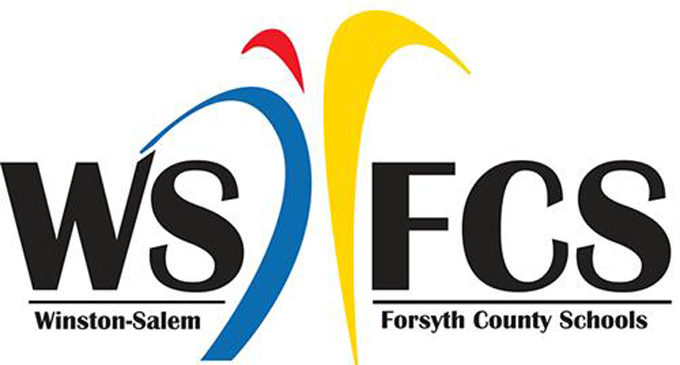WS/FCS Policy Committee supports launch of School-Justice Partnership

Winston-Salem/Forsyth County Schools’ (WS/FCS) policy committee has agreed to a partnership with the North Carolina judicial branch’s Administrative Office of the Courts, to launch the Forsyth County School-Justice Partnership, an initiative that will provide alternative responses to misbehavior and reduce law enforcement involvement in minor school infractions.
WS/FCS Deputy Superintendent Jesse Pratt said staff has been working on the initiative for several months and he was excited about the future of the program that will be offered at every school in the district. “We’re excited about this opportunity to partner with our community partners to help us reduce our disparities in discipline,” he said. Data shows longstanding disproportionate suspensions, particularly for Black/African American students. Here in Winston-Salem/Forsyth County schools, Black students are five times more likely to be suspended than white students.
During a student-led rally hosted by LIT City Freedom School early this summer, dozens of students from schools across the district spoke against factors that contribute to the school-to-prison pipeline. Jaylen Moore, who attends RJ Reynolds High School, said, “Not only do we want to bring awareness to this issue, we want change.”
This new initiative could be a step in the right direction. The Forsyth County School-Justice Partnership will assist the district with delving deeper into the data, policies and practices, recalibrating/developing new code, and developing a system to monitor referrals to the juvenile justice system. The partnerships will also work to strengthen existing programs and initiatives with similar goals.
According to Judge Denise Hartsfield, who spoke at the meeting last week, school-justice partnerships have been available to counties across the state since 2015, thanks to ruling by Judge J.H. Corpening in New Hanover County and Paul Newby, the chief justice of the N.C. Supreme Court. The ruling mandated that counties find ways to reduce the number of children who were coming to court. Since implementing the program, New Hanover County Schools has seen a 67% decrease in school-based referrals, dropout rates have declined, and the high school graduation rate has increased. In Lenoir County, school-based delinquency referrals have decreased by 87%. In Brunswick County, school-based delinquency referrals have decreased by 80%, and in Mecklenburg County, school-based delinquency referrals have decreased by 37%.
Hartsfield noted that the more kids come in contact with law enforcement, the criminal justice system, or the juvenile justice system, the more likely they are to continue down the wrong path. She said after several failed attempts to bring the program to Forsyth County in the past, she was excited when she was presented with the opportunity to finally make it happen.
“The other thing we found was when students did not engage with the criminal or juvenile justice system, graduation rates went up, all kinds of records were being set because kids were on another trajectory,” Hartsfield continued. “Basically, this resolution says this: let’s attempt to keep out of our courts, juvenile, criminal and otherwise, our students who are charged with school-related offenses. Let’s try to keep them out and let’s look for ways to get them out of that system and get them on a faster track to graduation.”
When it came time to vote, the policy committee members Elisabeth Motsinger, Andrea Bramer, Deanna Kaplan, Marilyn Parker and Alex Bohannon voted unanimously to approve the resolution. The full Winston-Salem/Forsyth County Schools Board of Education is expected to vote on the resolution approving the Forsyth County School-Justice Program later this month.









